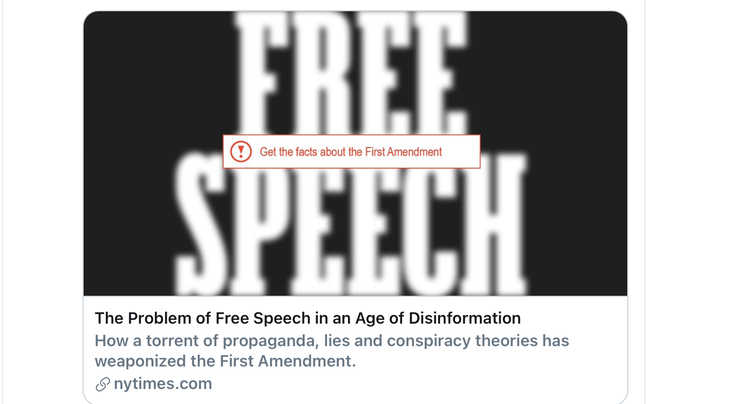


By Steve Sailer
10/17/2020
Back in the liberal 1960s–1970s, the most important judge in the United States not on the Supreme Court was David L. Bazelon, chief judge of the United States Court of Appeals for the District of Columbia Circuit from 1962–1980 and best friend of William Brennan, the Svengali of the Warren Court. Bazelon and Brennan would frequently collaborate on how to tee up cases for the Warren Court to issue landmark rulings upon.
Not surprisingly, back then Judge Bazelon was an ardent supporter of the First Amendment. From Jessell at Large:
In 1975, when broadcasting was at its zenith, David Bazelon, chief judge for the U.S. Court of Appeals in Washington, wrote an article for the Duke Law Journal that eloquently made the case for why licensed media and the First Amendment were incompatible.
Sometimes the motive of the government is “laudable,” perhaps to improve the quality of programming or to mitigate racial discrimination, he wrote. “But under the First Amendment, the licensor’s motivation should be irrelevant: the exercise of power over speech leads the government knee-deep into regulation of expression. And that, we have always assumed, is forbidden by the First Amendment.”
Bazelon recognized that the temptation to regulate the press is always present. “Somehow we do not really think that the press should be free; they are too powerful, they are arbitrary, they are self serving….,” he wrote. “I have said before and I repeat now that the press has abused its tremendous power, particularly the power of TV, largely for its own private profit, at the expense of the public interest.
“But I do not personally believe in the efficacy of, nor do I think the First Amendment permits, government intervention to cure those abuses.”
Ironically, but not surprisingly, Judge Bazelon’s granddaughter, Establishment legal pundit Emily Bazelon (who can always be counted on for an amusing lack of self-awareness, such as her massive 2009 article in Slate in 2009 about how New Haven fireman Frank Ricci deserves to be stripped of his promotion because certain white families in New Haven have an invidious culture of studying hard to be expert firefighters — Emily herself is the Truman Capote Fellow for Creative Writing and Law at Yale Law School, but her sinecure has nothing to do with her grandfather’s eminence), writes in the New York Times that while the First Amendment might have been all well and good in the past, it’s not worth keeping around today when Bad People are promoting Bad Ideas:
The Problem of Free Speech in an Age of Disinformation
A torrent of propaganda, lies and conspiracy theories has weaponized the First Amendment.It’s an article of faith in the United States that more speech is better and that the government should regulate it as little as possible. But increasingly, scholars of constitutional law, as well as social scientists, are beginning to question the way we have come to think about the First Amendment’s guarantee of free speech. They think our formulations are simplistic — and especially inadequate for our era. Censorship of external critics by the government remains a serious threat under authoritarian regimes. But in the United States and other democracies, there is a different kind of threat, which may be doing more damage to the discourse about politics, news and science. It encompasses the mass distortion of truth and overwhelming waves of speech from extremists that smear and distract.